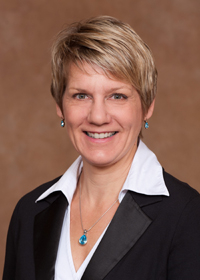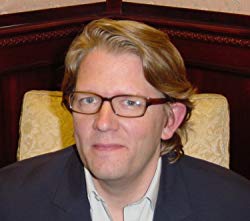
Some of this year’s favorite Executive MBA professors
Here’s the playbook for getting ahead. You put in late hours, rack up accomplishments, and get along with people. Just play by the rules, stay loyal, and wait your turn and you’ll be rewarded. Simple, right?
That’s the old playbook…for the industrial age. Maybe it was just wishful thinking too. Fact is, not everyone plays nice. In any organization, there’s always gamesmanship to gain that little advantage. The politicos will whisper and blame, flatter and barter, and nitpick and bully. It’s a dirty business, many think. Why sell your soul? It’s just better to avoid it altogether.
“OFFICE POLITICS” ISN’T A DIRTY WORD
That’s what Raha A. Been once believed. A product manager at 3M armed with a Ph.D. in cancer genomics, Been shied away for the political minefield. Then she took an organizational behavior course from Mary Zellmer-Bruhn, a professor at the University of Minnesota’s Carlson School of Management. Here, she discovered that “office politics” was more about building coalitions and gaining influence to ‘get things done’ in complex structures and conflicting constituencies.

Mary Zellmer-Bruhn
“I had a view of politics at work as a negative connotation and something to be avoided,” Been admits. “What she taught in her class, and supported with meaningful cases, was that politics were a part of business. A must to success is to understand the landscape you need to navigate. If one resisted politics, they were going to make achieving their goal a lot harder. She helped our class find a clear distinction between playing into work politics from being a skilled leader who strives to find harmony by navigating politics appropriately to ensure they didn’t derail your objective.”
More than sanitizing work politics, Zellmer-Bruhn created an environment that welcomes differing views, set expectations that raised student performance, and applied a teaching style that transformed how her classes viewed the world around them.
“She challenged us to think beyond the text and how to apply and improve within our work lives as leaders and individual contributors,” writes Been. “She motivated me to think about how to continually improve and find a new version of my best. She encouraged me to think differently about any situation, so I am now better prepared to face complex and challenging situations within my organization.”
DUKE PROF “COULD PULL A RABBIT OUT OF HER HAT”
Been is just one of the 2018 Best & Brightest Executive MBAs who paid tribute to their favorite professors. Forget the stereotypes of business professors being hard core researchers, old school taskmasters, or absent-minded practitioners. Instead, you’ll find faculty who made a difference by their ability to connect, inspire, support, and entertain. More than that, these professors spark growth and change in their adult students – many of whom are already experts and catalysts in their respective fields.
To do that, they need to deliver a classroom experience that’s memorable. That seems to be a faculty specialty at Duke University’s Fuqua School of Business based on Clay Berardi’s observations. In his Managerial Economics course, he credits Dr. James Anton for helping the class visualize complex economic dynamics.

Stacy Wood
“He included incredible demonstrations of market powers that involved students virtually trading various commodities to each other under prescribed conditions. His technique brought supply and demand theory to life, essentially recreating the housing bubble, great depression, and oil crises within the classroom.”
Anton’s colleague, Dr. Stacy Wood, relies more on visuals to drive her point home, with Berardi describing her classes as a series of TED talks, “each more interesting than the last.” As a result, he looks forward to finding out what is going to happen next. “I swear Dr. Wood is going to pull a rabbit out of a hat before the term is done,” he says. “Thirty minutes into her first class, there were various-sized Starbucks cups spread across the podium and the compromise effect, pitfalls and advantages was forever impressed upon me.”
MAKING THE OLD SEEM NEW AGAIN
The same could be said for Dr. Charles Olson, a professor of practice at the University of Maryland’s Smith School of Business. His claims to fame? Think catchphrases, says Maurice Andrew Malcolm, who can still hear Olson rattle them off when he is working.
“He drilled in to us that being an effective executive means being bold, confident, and thorough in getting the CEO of your company or the board to buy into your idea. ‘Give them time to get to the data supporting your idea’… ‘Leave no room for doubt’ … ‘Deliver your idea with a loud voice of conviction.’”
Another reason why these professors are so memorable: They make the tried-and-true seem new again for their grizzled adult students. That’s the special touch that Dr. Prakash Mirchandani – or Master P as his students call him – brings to the table says Sanford Littwin.
“He has taken material that either I hadn’t thought about in 20+ years (Stats) or had never learned in a formal class setting (Supply chain) and made it interesting, exciting, and tangible,” says the 2018 University of Pittsburgh grad. “He has given fundamental understanding to the practical application of concepts I use in my everyday work.”

Paul Johnson
THE HARDEST THING TO DO: KEEP THINGS SIMPLE
The same could be said for Professor Paul Johnson, adds Kyle Moran. “He brought a practitioner’s expertise to the classroom in a classic Columbia Business School subject matter – Value Investing. His lessons were more than just analyzing stocks and bonds, he extended his lessons into the corporate and personal realms teaching the importance of understanding and applying concepts of value to make better decisions in business and life.”
At the University of Chicago’s Booth School of Business, Professor Ram Shivakumar also possesses a special gift that differentiates great teachers. In his Competitive Strategy, says Brendan Downing, Shivakumar was able to do something rare indeed: Break dense content down into “simple frameworks” – ones that have remained “top of mind.” Outside the classroom, Downing adds, Shivakumar is someone who keeps Booth students connected to each other.
“Ram has an uncanny ability to stay connected with students and make connections between students that have been out of the program for several years,” Downing adds.





Questions about this article? Email us or leave a comment below.